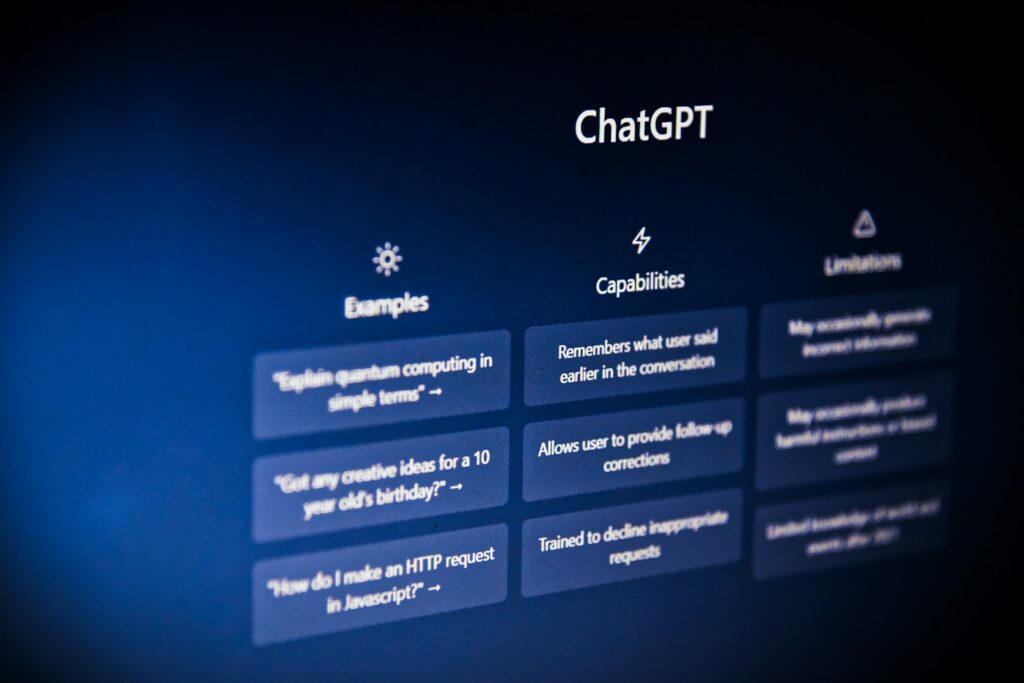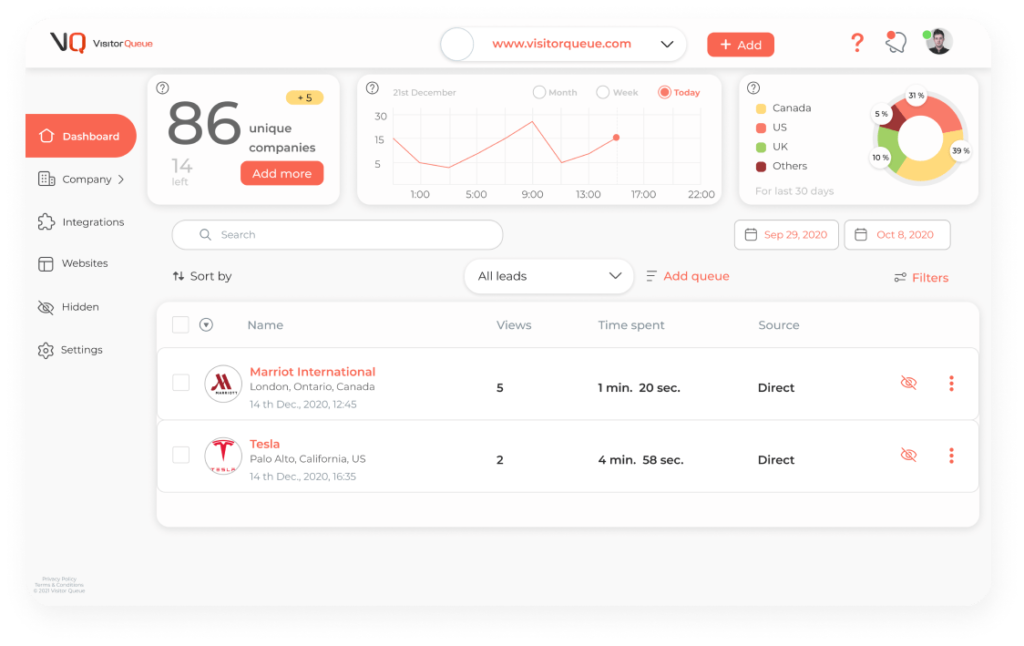For years, the formula for online visibility has been clear. Businesses optimized their websites for Google by focusing on keywords, backlinks, and technical SEO. If you ranked well on the search engine results page, you had a steady stream of traffic. This is starting to shift as people begin asking conversational tools like ChatGPT, Claude, and Gemini for answers instead of searching through traditional results. The question is no longer only about ranking on Google. But, also about how to rank on ChatGPT and other large language models. Learn everything you need to know about how to rank on ChatGPT and other LLMs below.
What is a Large Language Model?
A large language model, often called an LLM, is a type of artificial intelligence trained on enormous collections of text. These models analyze patterns in language, recognize relationships between words, and learn how to generate human-like responses to questions. Instead of memorizing exact text, an LLM understands the structure and context of language, which allows it to answer queries in a way that feels natural.
ChatGPT, Claude, Gemini, and similar tools all fall into this category. They do not work like traditional search engines. Instead of pulling up a list of links, they create an original response based on training data and, in some cases, real-time information from the web. That difference makes them great tools for quick answers, but it also means businesses need to rethink how they position themselves if they want to appear in those generated responses.
How Search is Changing
Search used to be simple. You typed a question into Google, and the engine showed you a ranked list of links. You then chose which link to click, often scanning through a few sites before finding what you needed. That model worked well for a long time, but people increasingly prefer a single, well-written answer without the extra steps.
When someone asks ChatGPT a question, they do not get a page of ten links. Instead, they get a conversational response that often feels like advice from a knowledgeable colleague. This means two important things. First, users spend less time clicking around different sites. Second, the model itself becomes the gatekeeper. Whether or not your business is mentioned in that answer depends on whether the model has associated your brand with authority and relevance on the topic.
This shift is especially important for B2B companies. Decision makers often ask broad research questions, such as “What is the best CRM for mid-sized companies”. If an LLM includes your company in the answer, you immediately gain credibility with the prospect. If you are not included, you may never be part of the consideration set.
Where Do LLMs Pull Their Information From?
One of the most common misconceptions is that ChatGPT or Claude simply browse the web each time you ask a question. That is not entirely true. LLMs are trained on vast datasets that include books, articles, websites, research papers, and publicly available information. During training, the model learns language patterns, facts, and context. Once trained, it generates answers based on that stored knowledge.
However, many LLMs also integrate real-time web access. For example, ChatGPT with browsing enabled can pull the latest information from online sources. Google’s Gemini draws from the company’s powerful search index. Microsoft’s Copilot taps into Bing. This blending of pre-trained knowledge with live web results means that both your historical online presence and your current content strategy matter. If your website has been consistently publishing authoritative content, it is more likely that an LLM has seen and integrated your information.

How to Rank on ChatGPT and Other LLMS
The first step in ranking on ChatGPT and other large language models is to accept that the goal is not identical to ranking on Google. You are not trying to land in the top three links on a page. Instead, you are working to become part of the knowledge base that an LLM draws from when creating answers. The following strategies will help strengthen your presence.
Publish High-Quality Content
High quality, authoritative content is the foundation. LLMs prioritize information that is clear, factual, and trustworthy. This means your website should focus on publishing in-depth articles that explain concepts thoroughly. Blog posts that answer common customer questions, provide original insights, and cite credible data are more likely to be recognized by these models. Short, shallow articles will not establish your authority in the same way. Keep in mind, if you are using an LLM to create your content, it already knows the information you are posting. This could diminish the chance of appearing in their search results.
Get Brand Mentions
LLMs notice when your company is referenced across the web. If industry publications, partners, or other credible sources talk about your business, the model begins to associate your name with expertise in that field. For example, if another website creates a blog listing the best lead generation software for B2B companies, and your company is among the top, it will bode well. Building relationships, earning mentions in articles, and participating in industry discussions all contribute to your visibility inside language models.
Post on Reddit and Other Forums
Community platforms like Reddit, Quora, and industry-specific forums are often included in the training data of LLMs and are frequently indexed by search engines. Participating in conversations by providing helpful, authentic answers can increase the chances that your insights are included in responses generated by ChatGPT or Claude. Consistency and value are critical here. Promotional posts are often removed, but genuine contributions can have long-term visibility.
Create a Wikipedia Page
Wikipedia remains one of the most trusted sources for both traditional search engines and LLMs. If your business is notable enough to qualify, having a well-sourced Wikipedia page can improve credibility and increases the likelihood that information about your company is surfaced in generated responses. Ensure that your page follows Wikipedia’s strict editorial guidelines and cites reliable, third-party sources.
Optimize Technical SEO
Technical optimization still plays a role. Structured data, clear headings, and logical site organization make it easier for both search engines and LLMs to understand your content. Since many models pull from search indexes, the content that performs well on Google is also more likely to be used in generated answers. Maintaining fast load times, mobile friendliness, and secure connections can help your site rank. And, this goes for both LLMs and traditional search engines.
Maintain Content Consistency
Publishing once and then stopping will not build long-term visibility. Models evolve constantly, and real-time integrations favor fresh information. By updating older articles and continuing to publish new material, you increase your chances of staying relevant in the responses generated for your industry. This is also important for Google search results, so it’s a win-win.
Build Trust and Credibility
Transparency about authorship, expertise, and sources helps models trust your content. If your company consistently produces reliable material with clear attribution, you are more likely to be seen as an authority that LLMs can cite. Over time, trust signals reinforce your credibility both with traditional search engines and conversational models.
Do LLMs Yield High Quality Traffic?
One of the biggest questions businesses have is whether traffic generated through large language models is as valuable as traffic from traditional search. The answer depends on how you measure it. Because LLMs provide a direct, conversational response, fewer users click through to websites compared to a search engine results page. However, when someone does take the extra step to visit your site after reading about you in an LLM response, they are often highly interested and further along in the decision process. That means the traffic you do capture can be more qualified, even if the volume is lower.
This is where a tool like Visitor Queue becomes essential. With website visitor identification, you can see exactly which companies are landing on your site after being discovered through an LLM response. We provide how each company is acquired, the pages they visit, and how long they spent on each page to help you qualify them. We also provide employee contact information to help you reach out and ensure they found what they were looking for. Start your 14-day free trial of Visitor Queue today and stop losing leads.

What’s Next?
Large language models like ChatGPT, Claude, and Gemini are now part of how people search for information. That means your visibility strategy must adapt as well. Understanding what LLMs are, how they pull information, and how they present it is the first step. From there, creating authoritative, trustworthy, and consistent content will help your business appear in AI-driven responses. As always, if you have any questions about using Visitor Queue to identify your website visitors, do not hesitate to reach out.
 Identify
Identify Personalize
Personalize Benchmark
Benchmark Agencies
Agencies Integrations
Integrations Case Studies
Case Studies Use Cases
Use Cases Blog
Blog Resources
Resources









